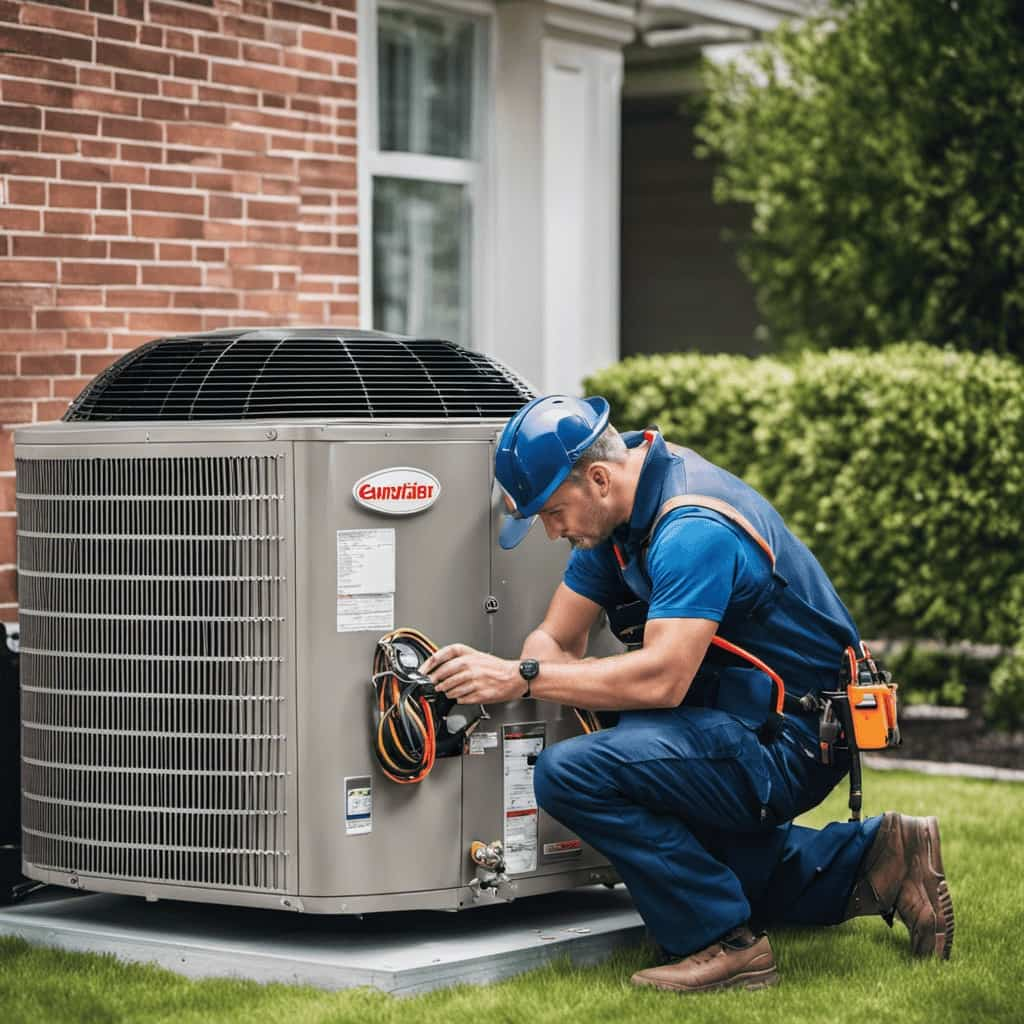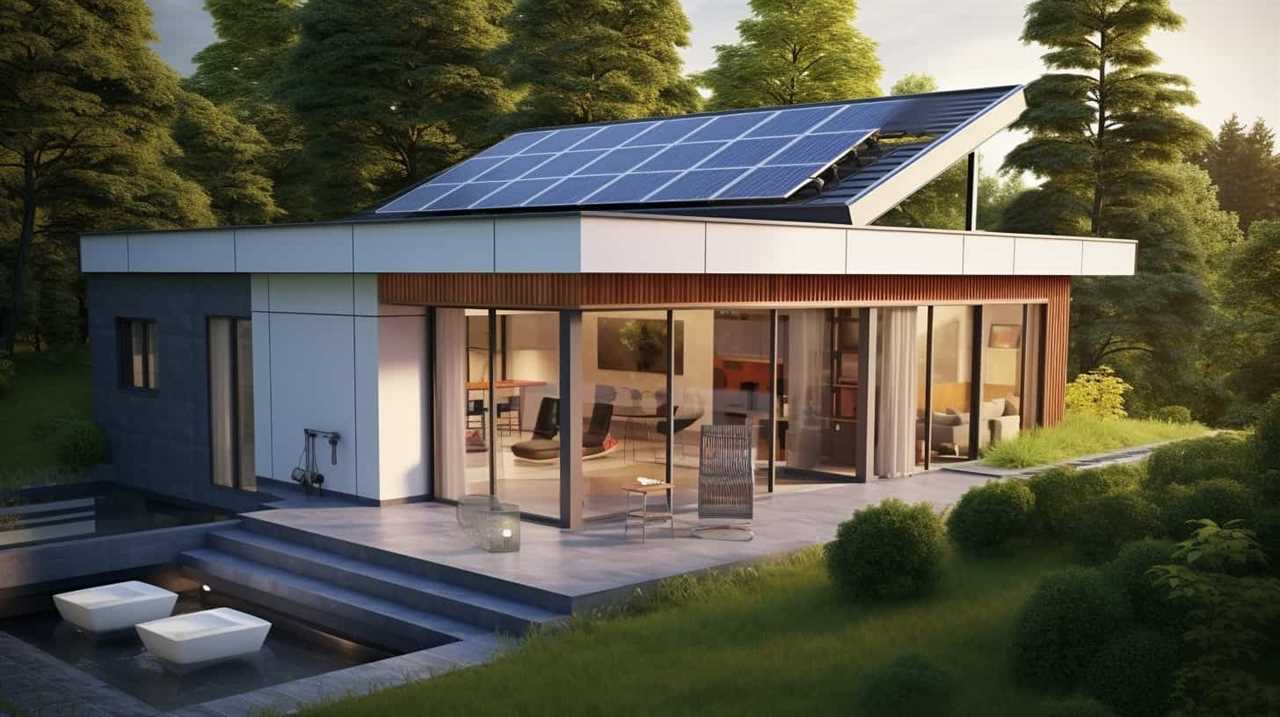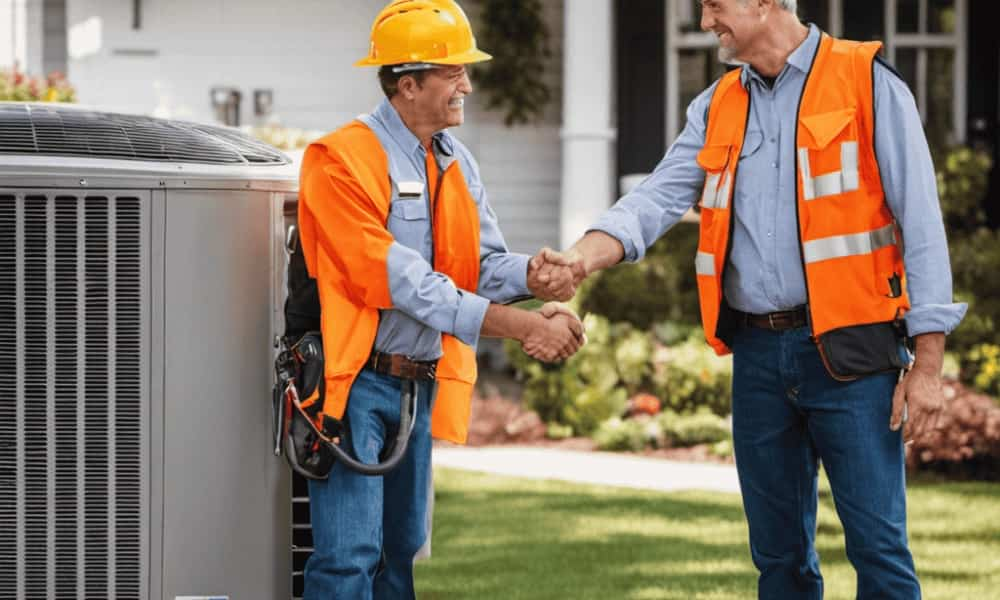Let’s explore the realm of heat pump energy consumption and reveal the keys to optimal efficiency.
We’ll explore the factors that can affect how efficiently your heat pump operates and discuss ways to optimize its energy efficiency.
By monitoring and analyzing your heat pump’s electricity usage, you’ll gain valuable insights that can help you save energy and reduce costs.
Get ready to decipher the mysteries of heat pump energy usage and unlock the true potential of your system.

Key Takeaways
- Regular maintenance is crucial for optimal efficiency and reduced energy consumption of heat pumps.
- Monitoring and analyzing energy consumption can help identify patterns and optimize efficiency.
- Proper insulation and sizing of heat pumps are essential for maximizing energy efficiency.
- Energy efficiency ratings, such as SEER and HSPF, indicate the energy efficiency of heat pumps, and higher ratings result in lower energy consumption and utility bills.
Understanding Heat Pump Energy Consumption
We are examining the factors affecting heat pump energy consumption to better understand its efficiency. When it comes to heat pump troubleshooting, understanding energy consumption is crucial.
One of the main factors influencing energy usage is the heat pump’s maintenance. Regular maintenance ensures that the system is operating at its optimal efficiency. This includes cleaning or replacing filters, checking refrigerant levels, and inspecting the outdoor unit for debris or obstructions. Neglecting maintenance can result in reduced efficiency and increased energy consumption.
Another important aspect to consider is the heat pump’s age and condition. Older units may require more energy to operate efficiently, while newer models are designed to be more energy-efficient.
Factors Affecting Heat Pump Efficiency
To optimize heat pump efficiency, it’s important to consider factors such as maintenance and age.

Proper heat pump maintenance plays a crucial role in ensuring optimal performance and energy efficiency. Regularly cleaning or replacing air filters, inspecting and cleaning coils, and checking refrigerant levels can significantly improve the efficiency of the heat pump.
Additionally, ensuring that the heat pump is appropriately sized for the space it’s intended to heat or cool is essential. Oversized or undersized heat pumps can lead to inefficiency and increased energy consumption.
Other factors that can affect heat pump efficiency include the insulation of the building, the location of the outdoor unit, and the climate in which the heat pump operates.
Monitoring Heat Pump Electricity Usage
Monitoring heat pump electricity usage helps us track and analyze the energy consumption of our system. By performing heat pump electricity cost analysis and tracking heat pump energy consumption, we can identify patterns and trends that may indicate areas for improvement. This data allows us to make informed decisions about optimizing our heat pump’s energy efficiency.

Understanding how much electricity our heat pump is using and when it’s using it can help us identify potential energy-saving opportunities. For example, we may discover that our heat pump is consuming excessive electricity during peak hours, leading to higher energy costs. By monitoring electricity usage, we can develop strategies to reduce consumption during these periods, such as adjusting thermostat settings or scheduling tasks that require high energy usage during off-peak hours.
Transitioning into the subsequent section about ‘tips to optimize heat pump energy efficiency’, let’s explore some effective measures to enhance heat pump performance and reduce energy consumption.
Tips to Optimize Heat Pump Energy Efficiency
Maximizing heat pump energy efficiency involves regularly maintaining and cleaning the system to ensure optimal performance. Here are some tips to help you optimize the energy efficiency of your heat pump:
-
Schedule regular maintenance: Regularly servicing your heat pump will keep it running smoothly and efficiently. This includes cleaning or replacing filters, checking refrigerant levels, and inspecting the system for any issues.

-
Clean the outdoor unit: Clear away any debris, such as leaves or branches, that may be blocking the outdoor unit. This will allow for better airflow and improve efficiency.
-
Set temperature preferences: Adjusting the temperature settings can help reduce energy consumption. Consider setting the thermostat to a slightly lower temperature in the winter and a slightly higher temperature in the summer.
-
Utilize programmable thermostats: Programmable thermostats allow you to set specific temperature preferences for different times of the day, allowing for more efficient heating and cooling.
-
Maintain proper insulation: Ensure your home is well-insulated to minimize heat loss or gain, helping your heat pump work more efficiently.

Following these tips will help you optimize the energy efficiency of your heat pump and save on energy costs.
Analyzing Heat Pump Energy Usage Data
We can evaluate and interpret the data from our heat pump energy usage to gain insights into its efficiency. Conducting a heat pump energy efficiency analysis allows us to identify patterns and trends in our energy usage.
By analyzing the data, we can determine how efficiently our heat pump is operating and if there are any areas for improvement. Key factors to consider include the energy consumption during different temperature conditions, the duration of heating or cooling cycles, and any fluctuations in energy usage.
Frequently Asked Questions
Are Heat Pumps Suitable for All Types of Homes and Climates?
Heat pumps can be suitable for all types of homes and climates, but heat pump sizing considerations and the energy efficiency of heat pumps in extreme climates must be taken into account.

Can Heat Pumps Be Used as a Standalone Heating and Cooling System?
Yes, heat pumps can be used as a standalone heating and cooling system. By maximizing heat pump performance and ensuring proper maintenance, we can achieve optimal efficiency in energy usage.
What Is the Average Lifespan of a Heat Pump?
The average lifespan of a heat pump varies depending on maintenance requirements. Regular maintenance can extend the lifespan, but on average, heat pumps last around 15-20 years.
How Often Should Heat Pump Filters Be Cleaned or Replaced?
Regular heat pump filter maintenance is crucial for optimal performance. Cleaning or replacing filters should be done every 1-3 months to ensure efficient airflow, prevent dirt buildup, and maintain indoor air quality.
Are There Any Government Incentives or Tax Credits Available for Installing a Heat Pump?
Yes, there are government incentives and tax credits available for installing a heat pump. These incentives and credits can significantly reduce the cost of installation and make heat pumps a more affordable option.

Conclusion
In conclusion, monitoring heat pump energy usage and optimizing its efficiency is crucial for reducing energy consumption.
One interesting statistic to consider is that by properly maintaining and utilizing heat pumps, homeowners can save up to 30% on their energy bills.
This significant cost savings can evoke a sense of satisfaction and motivation for individuals to take action and make informed decisions about their heat pump usage.









